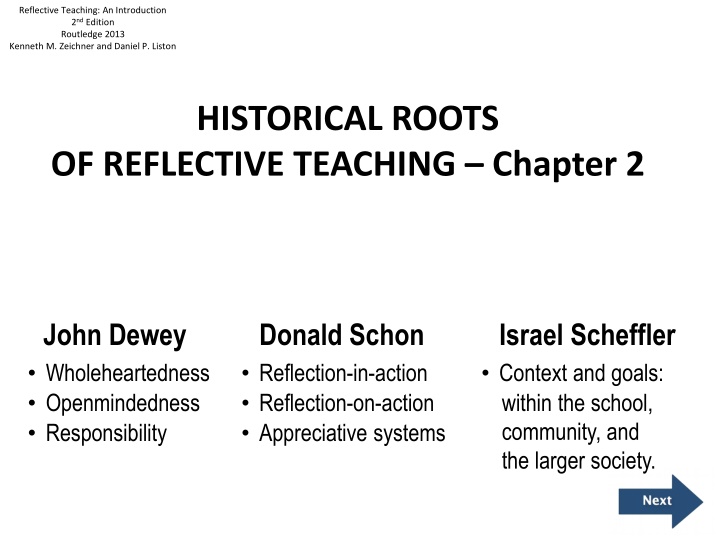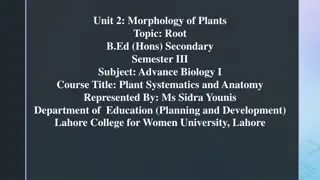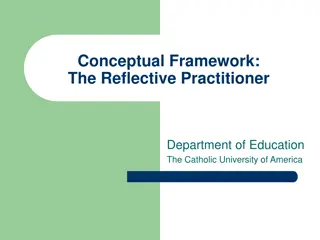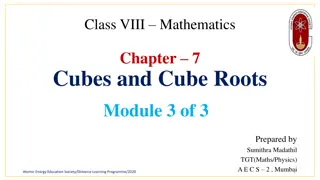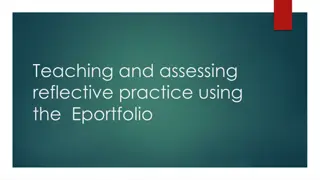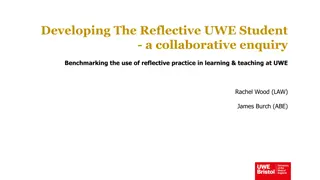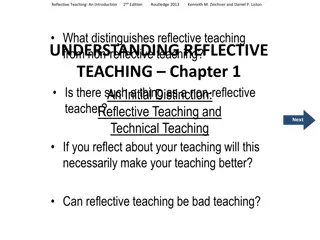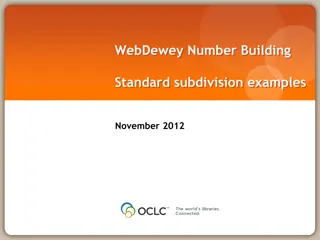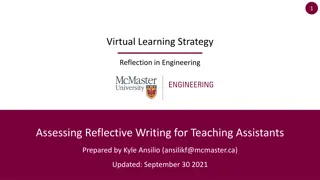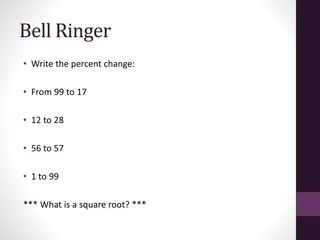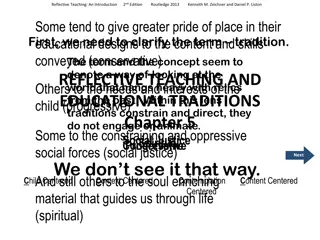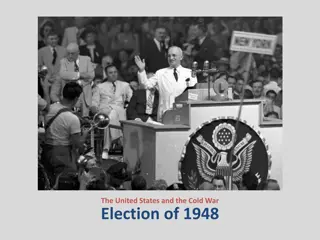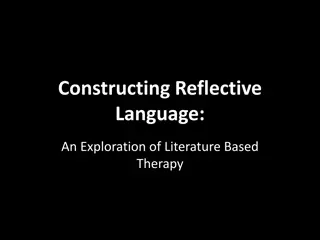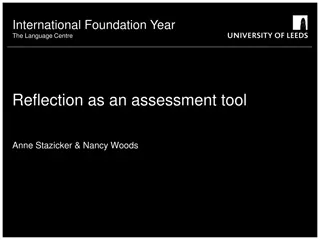Historical Roots of Reflective Teaching: Dewey and Schon's Perspectives
This content discusses the historical roots of reflective teaching, focusing on the contributions of John Dewey and Donald Schon. Dewey emphasized open-mindedness, wholeheartedness, and responsibility as integral to reflective action, while Schon introduced the concepts of reflection-on-action and reflection-in-action. Reflective teaching involves analyzing experiences, considering multiple perspectives, and adapting teaching methods based on ongoing reflections.
Download Presentation

Please find below an Image/Link to download the presentation.
The content on the website is provided AS IS for your information and personal use only. It may not be sold, licensed, or shared on other websites without obtaining consent from the author.If you encounter any issues during the download, it is possible that the publisher has removed the file from their server.
You are allowed to download the files provided on this website for personal or commercial use, subject to the condition that they are used lawfully. All files are the property of their respective owners.
The content on the website is provided AS IS for your information and personal use only. It may not be sold, licensed, or shared on other websites without obtaining consent from the author.
E N D
Presentation Transcript
Reflective Teaching: An Introduction 2nd Edition Routledge 2013 Kenneth M. Zeichner and Daniel P. Liston HISTORICAL ROOTS OF REFLECTIVE TEACHING Chapter 2 John Dewey Wholeheartedness Openmindedness Responsibility Donald Schon Reflection-in-action Reflection-on-action Appreciative systems Israel Scheffler Context and goals: within the school, community, and the larger society.
Deweys Contribution: What is Reflective Teaching? According to Dewey, the process of reflection for teachers begins when they experience a difficulty, troublesome event, or experience that cannot be immediately resolved, what Hugh Munby and Tom According to Dewey, reflection does not consist of a series of steps or procedures to be used by teachers. Rather it is a holistic way of meeting and responding to problems, a way of being as a teacher. Russell (1990) refer to as puzzles of practice. Prompted by a sense of uncertainty or unease, teachers step back to analyze their experiences. Unreflective teachers automatically accept the view of the problem that is the commonly accepted one in a given situation.
For Dewey three attitudes are integral to reflective action: Openmindedness An active desire to listen to more sides than one, to give full attention to alternative possibilities, and to recognize the possibility of error even in beliefs that are dearest to us. Reflective teachers are continually asking themselves why they are doing what they are doing. Wholeheartedness By wholeheartedness Dewey meant that openmindedness and responsibility must be central components in the professional life of the reflective teacher. Teachers who are wholehearted regularly examine their own assumptions and beliefs and the results of their actions and approach all situations with the attitude that they can learn something new. Responsibility This involves thinking about at least three kinds of consequences of one's teaching: (a) personal consequences-the effects of one's teaching on pupil self-concepts; (b) academic consequences-the effects of one's teaching on pupils' intellectual development; and (c) social and political consequences- the projected effects of one's teaching on the life chances of various pupils.
According to Schon, reflection can be seen in two time frames. Schon: First, reflection can occur before and after an action-and this is what he has called reflection-on-action. In teaching, reflection-on-action occurs before a lesson when we plan for and think about our lesson and after instruction when we consider what occurred. Reflection-on-Action and Reflection-in-Action Reflection can also occur during the action as well. Practitioners attempt to frame and solve problems on the spot. When teaching, we frequently encounter an unexpected student reaction or perception. While we are teaching we attempt to adjust our instruction to take into account these reactions. Schon called this reflection-in-action.
Schon (1983) maintains: Problems do not present themselves to the practitioner as givens. When we set the problem, we select what we will treat as the "things" of the situation, we set the boundaries of our attention to it, and we impose upon it a coherence which allows us to say what is wrong and in what directions the situation needs to be changed. Interactively we name the things to which we will attend and frame the context in which we will attend to them. Practitioners interpret and frame their experiences through the repertoires of values, knowledge and practices that they bring to the experiences. Schon calls these repertoires appreciative systems appreciative systems. knowledge, theories,
Presentation by: David Pretre According to Israel Scheffler (1968): Teachers cannot restrict their attention to the classroom alone, leaving the larger setting and purposes of schooling to be determined by others.[ ] If they are not to be mere agents of others, of the state, of Reflection As Contextual A criticism of Schon's work is that he focuses on teaching practice at the level of the individual without sufficient attention to the social conditions that frame and influence that practice. the military, of the media, of the experts and bureaucrats, they need to determine their own agency through a critical and continual evaluation of the purposes, the consequences, and the social context of their calling. Teachers should be encouraged to focus both internally on their own practices, and externally on the social conditions of their practice. We wholeheartedly support Scheffler's conception of the teacher's role. We fear that without such a conception in hand, the teaching profession will be further demeaned and eroded by calls for others to dictate what teachers should do.
